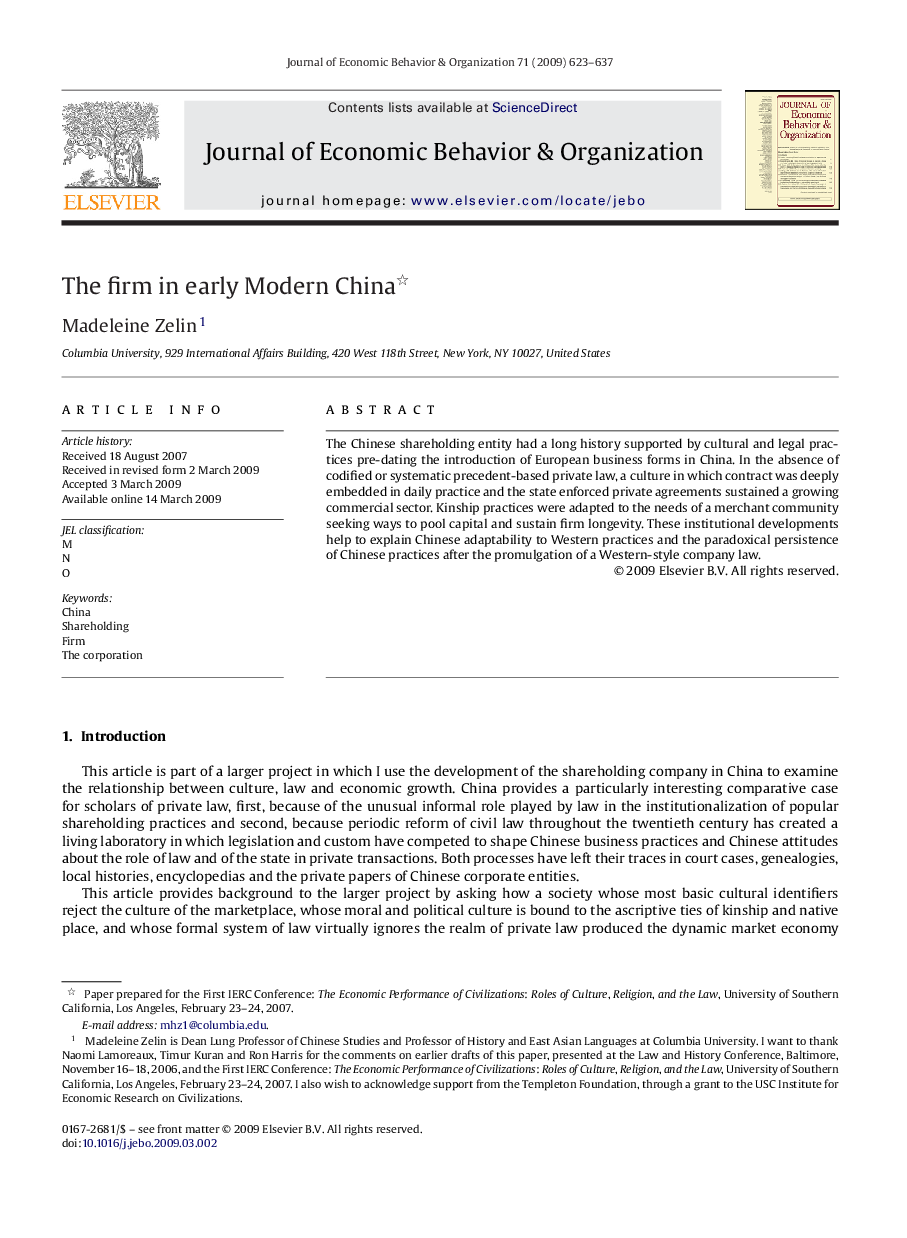| Article ID | Journal | Published Year | Pages | File Type |
|---|---|---|---|---|
| 884299 | Journal of Economic Behavior & Organization | 2009 | 15 Pages |
Abstract
The Chinese shareholding entity had a long history supported by cultural and legal practices pre-dating the introduction of European business forms in China. In the absence of codified or systematic precedent-based private law, a culture in which contract was deeply embedded in daily practice and the state enforced private agreements sustained a growing commercial sector. Kinship practices were adapted to the needs of a merchant community seeking ways to pool capital and sustain firm longevity. These institutional developments help to explain Chinese adaptability to Western practices and the paradoxical persistence of Chinese practices after the promulgation of a Western-style company law.
Keywords
Related Topics
Social Sciences and Humanities
Economics, Econometrics and Finance
Economics and Econometrics
Authors
Madeleine Zelin,
